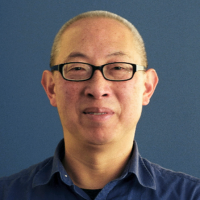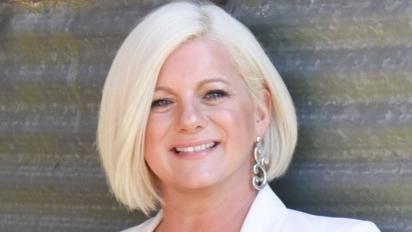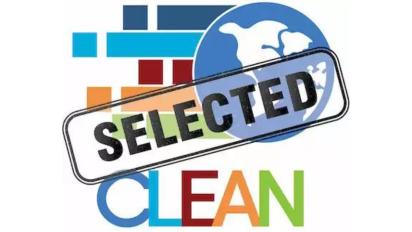Random Samples with Amanda L. Townley

Amanda L. Townley became Executive Director of NCSE in December 2023. She is an award-winning researcher and advocate specializing in science teacher education, evolution education research, and science literacy-focused public outreach. Prior to joining NCSE, she was Associate Professor of Middle Grades and Secondary Science Education at Georgia Southern University in Savannah, Georgia. Her research centered on the intersections between science and society, specifically the acceptance and rejection of evolution and climate change, misconceptions and misuse of the nature of science in anti-science movements, and the impact of the perceived conflicts between scientific understandings and culture on science literacy. Townley is a deeply engaged advocate of science for all and “hands-on, minds-on” science teaching and learning, supporting the accurate and comprehensive teaching of science across levels of study.
Paul Oh: You’ve had numerous connections with NCSE over the years. What kind of influence have those connections had on you and your work?
Amanda L. Townley: I found NCSE as a teacher, when I was emerging from my own experiences with evolution teaching and learning. That first connection let me know I was not alone and there were others out there working to ensure that students didn’t go through the same struggles I underwent in biology class. Later, as I pursued my education, I wrote a number of articles and had other opportunities to work with Glenn Branch and later you, Paul, to speak out for sound science in my own communities and my state. These early encounters lit a fire for me: I realized that I needed to speak up, and that fueled my desire to focus on evolution education in my research. Many years later, I was not only advocating for science education as needed in my home state but also publishing my own work on evolution teaching and learning as well as developing new approaches to evolution instruction and outreach. It was that shift that brought me deeper into the workings of NCSE, when the very first Teacher Ambassador group came to Savannah to begin their work. It was also at that time that Ann Reid and I presented on climate and evolution misconceptions to the American Association for the Advancement of Science. So much of my history is woven into the last decade of NCSE’s history that I feel that I am coming home!
PO: I’ve heard you discuss your upbringing in a ministry-focused household and how that has helped shape your beliefs about evolution education and science education in general. Can you say more about this?
AT: Oh, there is a whole book worth of information on that history, including an article I wrote for NCSE for Darwin Day several years ago. A very abridged version: I was brought up in a deeply devout family in a community and culture where all things are called back to church. At the same time, I grew up on a farm with amazing strong Southern women who encouraged me to explore, question, and stand up for others. All those things intersected when I was in the classroom of a teacher who was against evolution and refused to teach the subject. After reading more about this topic seen as “controversial” in my community, I realized that it related directly to my experiences and observations on the farm — I couldn’t understand why it was such an issue. When I brought the discussion home, though, I came to recognize that the reaction was rooted in fear and misunderstanding, of both evolution as a subject and science as a field. Over many years of research, self-exploration, formal education, and conversations with my family, community members, church groups, and the public, I realized that stories like mine had to be shared to let others from similar backgrounds learn how to navigate difficult passages where their faith and what they learn about science seem to be at odds. This also lets people know that learning science and being scientifically minded is for everyone!
PO: I can understand, then, why your research has centered on societal acceptance or rejection of evolution and climate change as well as misconceptions and misuse of the nature of science in anti- science movements. How do you think these research topics have prepared you to help fulfill NCSE’s mission?
AT: My work for the last 15 years has focused on three main areas. The first is traditional academic research, expanding what we know about the teaching and learning of those subjects, both quantitatively and descriptively. The second is outreach: getting that information translated into public spaces, such as churches, community groups, and even social media platforms. The third is what’s called research-to-practice: taking what we discovered about teaching and learning, connecting it with educational and public needs, and then developing teaching approaches or materials accordingly. I find it encouraging that in the three arenas in which NCSE operates, the same focuses are apparent: Investigating Science Education — research; Catalyzing Action — public outreach; and Teacher Support — research into practice.
PO: What else would you like our supporters to know about you and your work?
AT: I would like them to know how passionate I am about changing science education for the better — allowing students around the country to learn science in a way that is accurate, robust, and that inspires curiosity. Teachers play a key role, of course. I use the terms “scientist teachers” and “hands-on, minds-on” science a great deal when talking about teaching evolution, climate change, and the nature of science. To help to transform science education, teachers must be empowered to be more than passive givers of information. They should be the inspiration of curiosity and a model of scientific inquiry for their students. They should be “scientist teachers”: scientists in their own right, who guide students through investigating phenomena, making observations, and reaching conclusions on the basis of evidence. Teaching in this way is what I call a “hands on, minds on” approach in which students engage with the evidence as a scientist would! In light of my passion for improving science education, I can’t think of anything more exciting than spearheading NCSE’s efforts to bring these ideas to classrooms across the country.
PO: Finally, what are you most looking forward to in your new role as executive director?
AT: As a teacher and academic, my research, outreach, and teacher work represented just a portion of the roles and responsibilities I balanced. Since those are the things I am most passionate about, I always desired to do more than what time was afforded. In my new role with NCSE, these are now the primary focus of my position and I can dedicate myself wholly to the mission of improving science education. I also get to put my high energy level into empowering, motivating, and encouraging our staff, partners, and donors. I love to engage with others who are passionate, or even just cautiously curious, about science, especially evolution and climate change, so I look forward to opportunities to connect.







